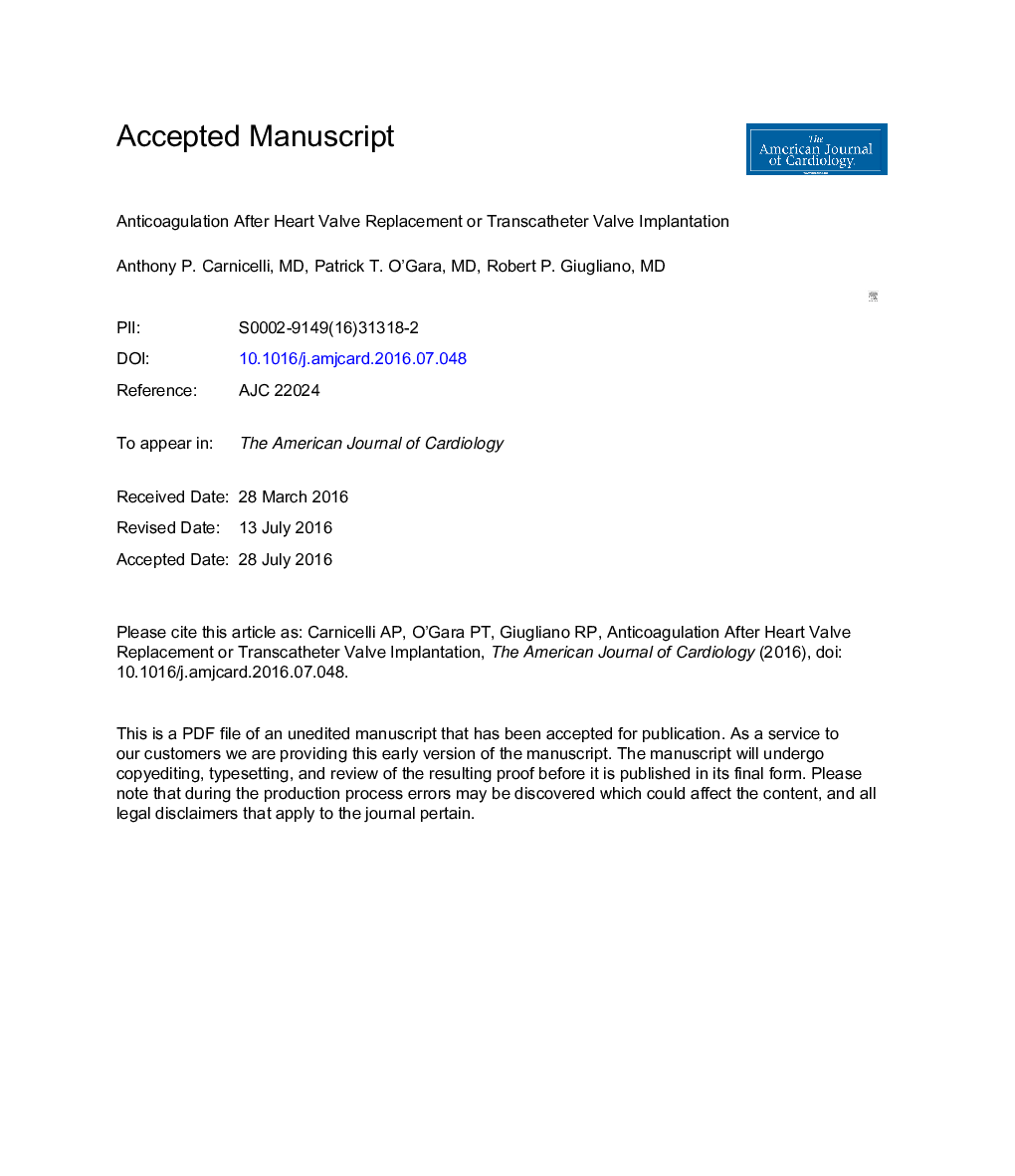| Article ID | Journal | Published Year | Pages | File Type |
|---|---|---|---|---|
| 5595348 | The American Journal of Cardiology | 2016 | 33 Pages |
Abstract
Valvular heart disease is prevalent and represents a significant contributor to cardiac morbidity and mortality. Several options for valve replacement exist, including surgical replacement and transcatheter valve implantation. Prosthetic valves lead to increased risk of thromboembolic disease; therefore, antithrombotic therapy after valve replacement is indicated. For patients with mechanical prostheses, indefinite vitamin K antagonist and antiplatelet therapy are the mainstays of treatment. There is no consensus regarding optimal antithrombotic therapy after bioprosthetic valve replacement, although vitamin K antagonist therapy of varying duration in addition to antiplatelet therapy is recommended by guidelines. Dual-antiplatelet therapy is commonly used after transcatheter valve implantation; however, alternative antithrombotic regimens are being studied. Further studies are needed to identify the optimal regimen, intensity, and duration of antithrombotic therapy after surgical bioprosthetic valve replacement and transcatheter valve implantation.
Related Topics
Health Sciences
Medicine and Dentistry
Cardiology and Cardiovascular Medicine
Authors
Anthony P. MD, Patrick T. MD, Robert P. MD, SM,
